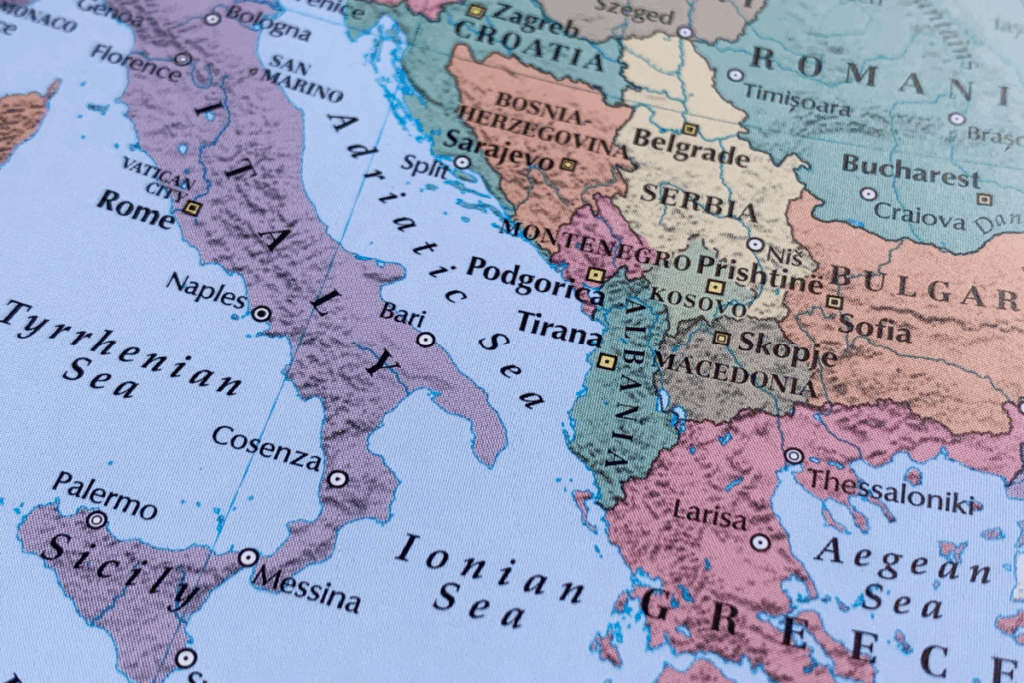Italy Faces EU Legal Blow Over Migrant Transfers
Italy’s controversial decision to process asylum seekers in Albania has come under fire after the European Union’s top court ruled against its current practices. The European Court of Justice (ECJ) concluded that Italy’s method of designating certain countries as “safe” for deportation—such as Bangladesh—does not fully protect the rights of vulnerable individuals seeking asylum.
This verdict marks a significant legal challenge to Italy’s migration deal with Albania, where two offshore processing centres were set up to handle asylum applications outside Italian borders. These centres, although under Italian jurisdiction, limit access to asylum procedures for people coming from so-called “safe” countries. Those not on the list must be returned to Italy while their claims are reviewed.
The case was prompted by the transfer of two Bangladeshi nationals who were intercepted at sea and sent to Albania, only to have their asylum requests rejected under Italy’s updated list of safe countries. The ECJ sided with an Italian court questioning the transparency and fairness of this process.
Safety Designations Under Scrutiny
Central to the ECJ’s decision is the legal concept of a “safe country of origin.” According to EU law, this label can simplify deportation processes, allowing governments to assume that certain nationals are unlikely to face persecution. However, the ECJ emphasized that such designations must be backed by solid evidence and must allow for judicial review.
The court stated that a country cannot be deemed universally safe if there’s a chance it may pose threats to specific individuals or vulnerable groups. Italy’s updated list of safe countries, which includes Egypt and Bangladesh, has drawn criticism for ignoring such nuances. The judgment clarified that no country can be considered “safe” in general terms without considering individual circumstances.
This ruling puts pressure on member states to increase transparency in how they define safety for asylum seekers. It also reinforces that each case must be evaluated independently, with access to fair procedures, regardless of nationality.
Government Pushback and Ongoing Transfers
Italy’s government, led by Prime Minister Giorgia Meloni, has reacted strongly to the ruling, viewing it as an infringement on national sovereignty. Authorities argue that the judgment undermines their ability to manage borders and prevent illegal immigration. In response, the government has adjusted the purpose of the Albanian processing centres. Now, they primarily house individuals whose asylum applications have already been denied.
Despite the legal setback, transfers to Albania continue. However, the immediate impact of the ruling on Italy’s current migration policy remains limited. Italian officials insist the centres are still an effective solution, even as the number of people held in Albania remains far below the projected 3,000 per month.
Cost and Future Outlook
Beyond legal and political debates, Italy’s offshore migration plan has raised financial concerns. A recent study from an Italian university found that maintaining a spot for one migrant in Albania costs over €153,000—significantly higher than the €21,000 it costs at centres in Sicily. This stark contrast has prompted questions about the efficiency and sustainability of the initiative.
Looking ahead, the landscape of EU asylum law is set to evolve. A new regulation, expected to come into force within the next year, will allow countries to declare others as “safe” with specific exceptions. This model aligns more closely with Italy’s current approach. In addition, the European Commission has introduced a non-binding list of safe countries, including some of those under Italy’s spotlight.
As the debate continues, Italy’s position within broader EU migration strategy remains contentious. While the ruling strengthens legal protections for asylum seekers, it also sets the stage for ongoing political tension between EU institutions and member states seeking stricter border control.



